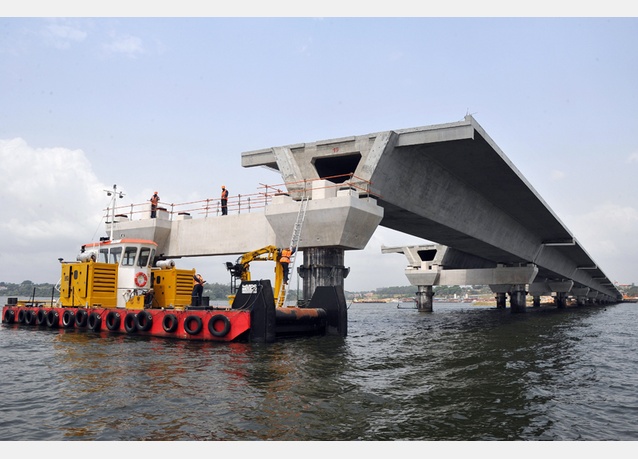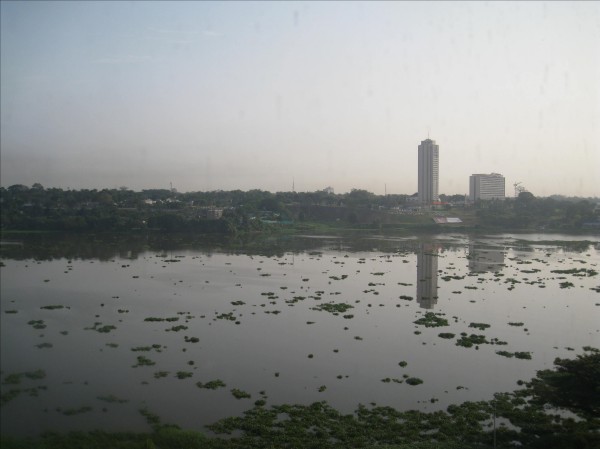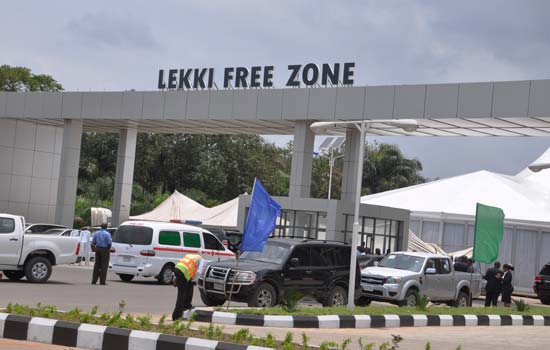Bridging lagoons in Abidjan, Lagos
Two economic capital cities in West Africa have embarked on remarkable physical development initiatives aimed at supporting their rapid growth.
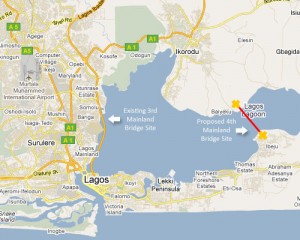
Traversed by water bodies, Lagos in Nigeria and Abidjan in the Ivory Coast are experiencing an escalation in population density as well as vehicular movement between metropolitan settlements separated by the sea.
While the Ebrie Lagoon divides the residential Riviera district and the commercial hub of Marcory, the Lagos Lagoon separates the largely uptown Mainland from the business oriented Island.
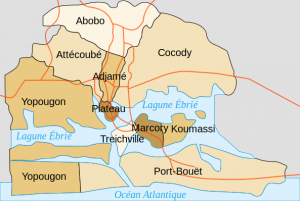
Over the years, overpasses have been built to bridge the respective divides and boost the development of the urban centres. While Abidjan has two existing bridges to serve this purpose, Lagos displays three.
Built between 1954 and 1957, the Felix Houphouët-Boigny Bridge is a road and rail bridge. The second is the Charles de Gaulle Bridge that was built in 1967.
The first of the three bridges connecting the Lagos Island to the Lagos Mainland is the Carter Bridge. Built in 1901, it was constructed by the British colonial government, prior to the Nigerian independence in 1960. After independence, the bridge was dismantled, redesigned and rebuilt during the late 1970s. The Alaka-Ijora Flyover, on the Iddo end of the span, was completed in 1973.
This was followed by the Eko Bridge, which is the shortest of three bridges connecting the Island to the Mainland. It starts from Ijora on the Mainland and ends at the Apongbon area of the Island. The bridge and its landward extension of 1,350 metres were constructed in phases between 1965 and 1975. It serves as the preferred access point for vehicular traffic approaching Lagos Island from the Apapa and Surulere areas of Lagos.
In the bid to further ease the increasing stress resulting from commuters’ accessing the Island from the Mainland, the Federal Government embarked on the ambitious Third Mainland Bridge, which turned out to be not just the longest of the three bridges connecting the Island to the Mainland, but in fact the longest bridge in Africa.
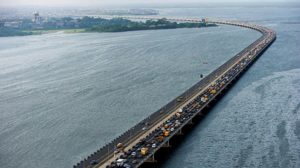
The 11.8km long structure takes off from Oworonshoki which is linked to the Apapa-Oshodi Expressway and Lagos-Ibadan Expressway, and ends at the Adeniji Adele Interchange on Lagos Island. There is also a link midway through the bridge that leads to the Herbert Macaulay Way, Yaba. Built by Julius Berger Nigeria Plc, the bridge was opened by President Ibrahim Babangida in 1990.
However, the bridges are increasingly becoming inadequate as both cities prosper. With over 200,000 vehicles crossing the Felix Houphouët-Boigny and Charles de Gaulle bridges daily, Ivorian authorities believe that it is no longer realistic to have two bridges serving the city; hence the need for a third.
Similarly, Lagos is seeking solace in what looks an unprecedented forth overpass in the overcrowded city, where officials of the Lagos State Government have commenced preliminary work on the Fourth Mainland Bridge, a 26-kilometre infrastructure designed to link Ikorodu to the state’s economic hub in Eti-Osa Local Government Area.
Estimated to gulp a whopping N160 billion, the bridge will provide access from the hinterland to Victoria Island, which is expected to reduce traffic on the ever-busy Third Mainland Bridge and other bridges linking the Mainland to the Island.
From illustrations released by government, the bridge (tagged “The People’s Bridge”) will feature two levels – the upper one for vehicular movement and the lower for pedestrian movement that incorporates a daily market facility.
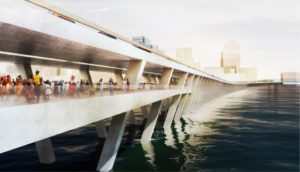
While restating its commitment to the project, the government recently unveiled three different alignment options for the bridge, which officials disclosed was necessitated following the dilemma of having to demolish about 318 houses to accommodate the bridge with the initial alignment.
In Abidjan, the Africa Finance Corporation (AFC) is partnering with the African Development Bank (AfDB) and the Ivorian government to invest N52.65 billion (270 million euro) in financing the Henri Konan Bedie (HKB) Bridge, which will on completion this year be the third bridge in the city.
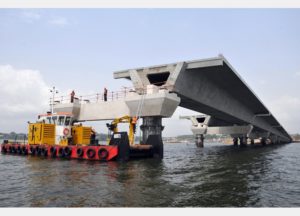
With only two bridges crossing the Ébrié Lagoon around which Abidjan is built, traffic in the centre of the city is often gridlocked.
However, the new toll bridge is expected to reduce transportation time and costs by easing congestion over the existing two (non-tolled) bridges crossing the lagoon within the city.
Key project sponsor – Bouygues Group of France – is building the bridge under a turnkey fixed price arrangement, while the Government of Ivory Coast is providing a 30-year concession with a strong support.
The 1.5km bridge, linked to a new six-lane motorway, will be the first major infrastructure project completed in the city since the 2002 to 2004 civil war dragged the country into a decade of turmoil. It could add 1 percentage point to economic growth, it was gathered.
The toll for using the HKB Bridge could be between 700 (N241) and 1,000 CFA francs (N345).
The bridge is expected to cut the time required to cross the lagoon from Riviera to Marcory, from two hours to about three minutes, boosting economic activity by reducing time lost in traffic.
Ivory Coast’s roughly $40 billion economy makes up nearly half of the gross regional product of West Africa’s eight-nation CFA franc currency bloc.
Where the Green meets the Blue Economy
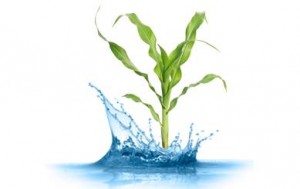
The idea of sustainable development has formed the basis of the Green Economy, which looks outward from land to the ocean space as a limitless horizon with unending resources. The Blue Economy, on the other hand, views a sustainable ocean economy as an integral part of the Green Economy.
Alison Borgess, founder of the International Ocean Institute, sums up this tie in explaining the Blue Economy: “If before you saw the sea and the sea floor as a continuation of the land, you now see the land as a continuation of the sea.”
The Blue Economy is a concept derived from the fact that we live on a planet made of up to 75 percent of ocean. When examining this with our “land based” vision, what we see is basically limited to an ocean and coast interface. But the economy of this planet must be seen as an integrated whole and in homage to our blue planet we can call it “The Blue Economy” which, in essence, implies the full interaction of the human species “living with the ocean and from the ocean in a sustainable relationship”.
The Green Economy is one that results in reducing environmental risks and ecological scarcities. It entails an economy or economic development model based on sustainable development and a knowledge of ecological economics.
A feature distinguishing it from prior economic regimes is the direct valuation of natural capital and ecological services as having economic value and a full cost accounting regime in which costs externalized onto society via ecosystems are reliably traced back to, and accounted for as liabilities of, the entity that does the harm or neglects an asset.
The concept of the Blue Economy was born out of the 2010 International Ocean Institute (IOI) Pacem in Maribus 23rd conference in Beijing, China.
United Nations Secretary-General, Ban Ki-Moon, two years ago launched the comprehensive Oceans Compact, which aims at setting out a strategic vision for the UN system to deliver on its ocean related mandates, consistent with the Rio+20 outcome, in a more coherent manner and to provide a platform for all stakeholders to collaborate and accelerate progress in the achievement of the common goal of Healthy Oceans for Prosperity.
It is expected to build upon the range of existing and ongoing activities of the UN organisations to assist member states to implement the United Nations Convention on the Law of the Sea (UNCLOS) and other relevant global and regional conventions.
While there is interdependence between oceans, coasts and humans that inhabit the coast on one hand, most urban centres are, on the other, experiencing a fast and largely uncontrolled population growth, particularly in developing countries. This has been more evident in coastal areas.
Concern lies in the magnitude of the interdependent impact that the nexus between ocean and urban coast and human settlement has on the economic, social and environmental sustainability of ocean and coast. Coastal cities are at the front line of this impact.
There is no doubt that the current deterioration of the health of the ocean is in large part due to the result of the pressures exerted by human settlement and the negative impact on the oceans and coasts ecosystems.
Some of the ocean’s services to mankind are: in fields ranging from recreation to research, from travel to trade, from food to medicine, from waste disposal to carbon sink, from energy to minerals, from climate control to border control and much, much more.
The Blue Economy renders imperative an inclusive stakeholder participation in collaborative governance based on linkages between ocean, coastal and urban systems that internalizes the vulnerability of communities and infrastructure. In the Blue Economy there would be a need to quantify internal benefits of different activities and the commensurate viable socio-economic contribution to resilience through preparedness, mitigation and adaptation by the nation or community.
The Blue Economy at the national level revolves around an efficient and sustainable use of ocean and coastal services and resources that internalizes external costs together with an efficient valuing of natural non-market assets and services and the access thereto. This however makes imperative a major reform of the financial architecture governance for a fiscal overhaul that reflects all aspects of ocean services.
An important tenet of the Blue Economy is that the responsibility as well as sharing in the costs and benefits does not rest with one entity such as the State but it should be spread among all stake holders. It is the responsibility of all stake holders in a holistic model, at the level of the individual, the locality, the community, the society, the region, the national level and the international, public and particularly private sectors.
The first World Ocean Review lists the following five effects of sea-level rise on the natural coastal system: sea level rise, flooding, loss of coastal wetlands, erosion of beaches and bluffs, intrusion of saltwater and limited soil drainage.
Lagos Floating School project nominated for award
A prototype floating school in Lagos has been nominated for the Designs of the Year prize 2014.

The Floating School in Makoko, a poverty-stricken coastal community in Lagos, Nigeria, is the pilot project in a planned water-top development that could transform the deprived area.
Completed in about five months, the solar-powered building has three storeys – a recreation area, an enclosed classroom and a top-floor open-air classroom – and can hold about 100 students.
Made from locally reclaimed wood, it is supported by 256 re-used empty plastic drums that allow it to withstand storms and adapt to rising sea levels. Designed by NLÉ architects, a young Nigerian/Dutch practice founded by Kunlé Adeyemi (who previously worked at OMA) and sponsored by the United Nations Development Programme (UNDP) and think tank the Heinrich Böll Foundation, a floating community of housing and civic buildings is due to complete by the end of this year.
The 76 nominated projects for the 2014 Designs of the Year will be exhibited at The Design Museum from 26 March – 25 August.
Climate Reality Project: Social revolution for climatic action
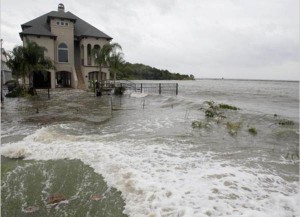 Our planet is fast heating up by the burning of fossil fuels with several tons of carbon pollutants entering the atmosphere everyday through landfills, transportation (traffic), power plants, forest burning, oil exploration & production, fertilizer application, industrialised agriculture, and coal/mining plants, to mention a few. Carbon pollution is disrupting our lives daily and destroying the earth. How long will we continue to live in an unsustainable way? Now is the time to put a price on carbon and implement the “Polluters Pay Principle” in order to combat the growing devastating impacts of climate change.
Our planet is fast heating up by the burning of fossil fuels with several tons of carbon pollutants entering the atmosphere everyday through landfills, transportation (traffic), power plants, forest burning, oil exploration & production, fertilizer application, industrialised agriculture, and coal/mining plants, to mention a few. Carbon pollution is disrupting our lives daily and destroying the earth. How long will we continue to live in an unsustainable way? Now is the time to put a price on carbon and implement the “Polluters Pay Principle” in order to combat the growing devastating impacts of climate change.
Nine of 10 hottest years on record in the US were in the past 12 years showing the rapid changes in climatic conditions. There is a thin distinction between the rainy and the dry (Harmattan) season in Nigeria, making it difficult for farmers to predict the production season.
Recently, extreme weather conditions have been experienced globally ranging from flooding in India, Pakistan, Argentina, Taiwan, Philippines, Brazil and South of Nigeria (Lagos, Delta and Ondo); droughts in Arizona, China, India, Spain, South Korea, Senegal, Switzerland and Northern part of Nigeria (Adamawa and Bauchi) and the raging fires in Colorado, Russia, Portugal, Turkey, Macedonia, Texas, also the hurricanes such as Sandy, Katrina, the Typhoon Haiyan in Philippines (one of the strongest tropical Cyclones recorded in history) and other tornados round the world.
Climate change is happening already and influencing our lifestyles; this is a call for action. How can you contribute? Promote clean and renewable energy, which is affordable, reliable and available.
The Climate Reality Project, founded and chaired by former Vice President and Nobel Laureate, Al Gore, is dedicated to providing a global cultural movement that demands action on the current climate crisis. The Climate Reality Project exists to forge a network of global support to create awareness on climate change and promote action. With that foundation, they kindle the moral courage in our leaders to solve the climate crisis.
The Climate Reality Project employs cutting-edge communications and community engagement tools to reach out and stir up proactive action to raise the profile of the climate crisis to its proper state of urgency. With a global movement, more than five million strong and a mass network of Climate Leaders trained by Chairman Al Gore, they promote the climate change conversations in their local community.
The Climate Reality Project operates in eight international offices: Australia, Canada, India, The Climate Reality Leadership Corps has hosted 23 trainings since 2007 in locations across the globe. In 2013, the trainings were held in Chicago and Istanbul. The 2014 trainings will take place in Brazil and South Africa.
By Agharese Ojelede
Who will clean up Abidjan’s Ebrie Lagoon?
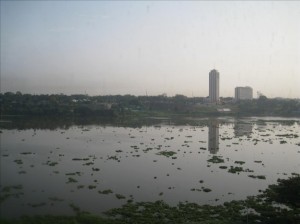 Abdulahi Traore, a fisherman, scouts the Ebire Lagoon that windless December morning, a forlorn look on his aging face. It’s about 10am in the morning as he guides the canoe past a body of seaweed, overlooking the imposing Hotel Ivoire, believed to be the biggest five-star hotel in the country.
Abdulahi Traore, a fisherman, scouts the Ebire Lagoon that windless December morning, a forlorn look on his aging face. It’s about 10am in the morning as he guides the canoe past a body of seaweed, overlooking the imposing Hotel Ivoire, believed to be the biggest five-star hotel in the country.
He says he has been out fishing since 6.30am and that he is disappointed with his catch today. According to him, in his 10 years as a fisherman the quality and quantity of fish from the water have steadily been on the decline.
“Due to the harmattan, the fish are hiding because the water is cold,” he suggests, managing a faint smile. He points out however that the pollution of the lagoon can also be attributed to its diminishing fishery stock.
Indeed, there are serious concerns among government officials and city dwellers in Abidjan, the Ivory Coast capital, over the unsavoury state of Ebrie Lagoon, a large expanse of salty water separated for almost all of its length from the Atlantic Ocean by a narrow coastal strip.
The 100 km (60 m) long lagoon linked to the sea by the Vridi Canal, once considered a symbol of the country’s beauty, has suffered from years of extensive pollution, endangering the four million inhabitants that live along its coastline.
Once a symbol of tourist attraction and proudly called the “pearl of the lagoons”, the Ebrie Lagoon is today an embarrassment to the sprawling city. Transformed into a dumping ground for urban and industrial waste several years ago, the water body has become contaminated with microbes and a layer of sedimentation because of pollution from worn-out sewage systems and garbage.
Nearly 60 percent of the industries in the country are concentrated around the lagoon area, contributing in large part to its degradation.
“The population is exposed to a number of contagious diseases, mainly cholera and typhoid fever,” says Ivorian environmental specialist, Thierry Mangle.
“The disappearance of the mangroves, a natural depolluting element that absorbs all the chemical particles in the water, has aggravated the situation,” he laments, fearing the advent of “an ecological catastrophe.”
The water quality is so bad water skiers abandoned the lagoon 20 years ago, a resident discloses, stressing that fishing has also considerably diminished. Around the Cocody Bay, the water is littered with plastic bottles, shoes, nylon, paper, bottle covers and cans.
But the lagoon is still home to some 150 species of rare shellfish, which are also threatened, he adds.
“It must be decided quickly. If not, we risk getting into an irreversible situation,” the source emphasises, adding that at least 2.2 trillion CFA Francs (33.6 billion euros, 50 billion dollars) will be necessary over the next 25 years in order to build decontamination and drainage works to regulate and control all the discharge into the lagoon.
Brice Delagneau, President of Amistad, a non-governmental organisation (NGO), stresses recently during a study visit to the lagoon by a team of journalists that government and the World Bank might soon embark upon a project to treat waste water before they are discharged into the sea.
“A Swedish NGO is assisting government in tackling the pollution problem in the Cocody Bay. We are working with the local community to sensitise them on how to treat their waste and keep the lagoon clean,” he says.
The journalists, who are from within the Abidjan Convention area, were at a training session in Abidjan. During the weeklong training, they were introduced to current and emerging issues on the marine and coastal environment, as they affect the lives of millions of people along Africa’s Atlantic seaboard.
“The workshop lead to the creation of a core of journalists willing to report authoritatively and frequently on the pressing marine and coastal environmental trends, concerns and solutions in the region,” Abou Bamba, the Convention’s coordinator, said.
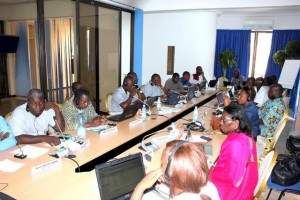 The journalists came from the print and broadcast media within the 22 countries which make up the Abidjan Convention area, spanning Mauritania to South Africa. Reporting on the pressing marine and coastal environmental trends in the region will require focus on issues such as the sources and activities causing pollution, some of which are the uncontrolled dumping of urban solid waste in coastal areas and waters; industrial effluent and other land-based activities.
The journalists came from the print and broadcast media within the 22 countries which make up the Abidjan Convention area, spanning Mauritania to South Africa. Reporting on the pressing marine and coastal environmental trends in the region will require focus on issues such as the sources and activities causing pollution, some of which are the uncontrolled dumping of urban solid waste in coastal areas and waters; industrial effluent and other land-based activities.
Some other issues of major concern to the Abidjan Convention, a regional seas activity of the United Nations Environment Programme (UNEP), are: overfishing; ocean governance; marine and coastal-based tourism; trends in anti-pollution policy and laws.
Funded by the Swedish International Development Agency, the workshop is the first of its kind for the Abidjan Convention region, whose coastline stretches for some 14,000 kilometres. The training is the result of a decision of the Conference of Parties (COP) to the Abidjan Convention in 2012 to raise public awareness of the Convention and of marine and coastal environmental issues.
Bamba’s words: “In general, in the Atlantic façade of Africa, media reporting on the environment is a gradual and growing practice. However, the focus is usually on inland concerns such as deforestation, land degradation and desertification, pollution of soils and water systems, waste water management, as well as endangered terrestrial flora and fauna. Rarely does reporting focus on marine and coastal environmental problems.
“Greater media coverage on these topics is, therefore, one of the reasons for and expected outcomes of this workshop. The awaited spin-off from this is increased public awareness, debate as well as legislative action to curtail marine and coastal environmental problems. Bringing the issue closer to the hundreds of millions of coastal Africans is designed to help change behavior and attitudes to marine and coastal pollution and destruction and spur greater community action to protect these environments. The anticipated result is greater well-being and economic benefits to coastal communities, whose livelihood are often determined by the health of the marine and coastal ecosystems.”
The Abidjan Convention is one of the regional seas programmes of UNEP. The Convention area contains some of the world’s richest fishing ground but which are now under pressure. Oil and gas exploration and exploitation is the newest activity in the Convention area, which raises potential oil spills with all their attendant consequences.
By Michael Simire
Ministers to define Africa Urban Agenda
Following the recent launch of the Nigeria Mortgage Refinancing Company (NMRC), Ministers for Land and Urban Development in Africa will address the issue of housing finance on the continent as they gather from Tuesday February 25 to Friday 28, 2014 in N’djamena, the Chadian capital, at the fifth session of the African Ministerial Council on Housing and Urban Development (AMCHUD).
The meeting, which has “Case Studies in Financing Human Settlements in Africa: Appropriate Legislative Frameworks and Innovations in Implementation” as its theme, will essentially:
- Develop an enhanced operational compendium for legislative framework and innovative practices for human settlements financing;
- Define ‘Africa Urban Agenda 2063’ that will also serve as an input into the African Union’s ‘Agenda 2063 as well as to the Post-2015 Agenda and to Habitat III; and,
- Adopt the N’Djamena Declaration on Financing Human Settlements in Africa.
Similarly, the seventh session of the World Urban Form will hold in Medellin, Columbia from 5th to 11th April. Both forums are coming in the wake of mounting efforts towards the articulation and adoption of a New African Urban Agenda, which is required to tackle the growing challenge of urbanisation on the continent. These processes, it was gathered, will lead up to the landmark third United Nations Conference on Housing and Sustainable Urban Development, billed to take place in 2016.
Nigeria, which is leading preparations under this initiative in Africa, had last year demonstrated its commitment to the process with a pledge of $3million spread over three years, to drive participation by African countries.
Deputy Executive Director and Assistant Secretary-General for UN-Habitat, Ms. Aisa Kirabo Kacyira, last week undertook a five-day mission to strengthen growing ties between the United Nations city agency and sub-Saharan Africa’s most populous nation.

Kaycira is a former Mayor of Kigali, capital of the Republic of Rwanda, where she had also previously served as Governor of Eastern Province, the largest in Rwanda, and as an elected Member of Parliament prior to assuming office as Assistant Secretary-General for UN-Habitat.
During the visit, the UN-Habitat Deputy Executive Director held several high-level meetings with top government functionaries including the Supervising Minister for Lands, Housing and Urban Development, Musa M. Sada; and the Minister of Finance and Coordinating Minister for the Economy, Dr. Ngozi Okonjo-Iweala. She also addressed the inaugural ceremony of Nigeria’s National Habitat Committee in Abuja.
The establishment of National Habitat Committees was recommended by the UN General Assembly to serve as a vehicle for ensuring a broad-based, gender balanced and inclusive participation process leading up to the Habitat III summit, and will include representation from government, civil society, the private sector, academic and research institutions and the media.
The Committee will, among several other tasks, ensure the effective and efficient participation of all stakeholder groups in the Habitat III preparatory process and oversee the preparation of national reports. The deadline for conclusion of National Habitat reports is June, this year.
Banning smoking in public in Lagos
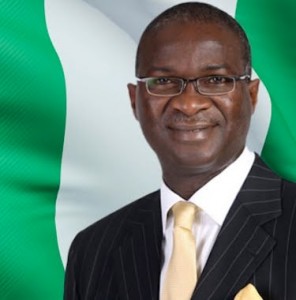 Governor Babatunde Fashola of Lagos State last week signed a bill banning smoking in public places in the state into law. By implication, nobody can smoke in public places anymore as offenders would be made to pay fine or go to jail.
Governor Babatunde Fashola of Lagos State last week signed a bill banning smoking in public places in the state into law. By implication, nobody can smoke in public places anymore as offenders would be made to pay fine or go to jail.
The House of Assembly had recently passed a bill banning smoking in public places and placed fine of N10,000, three months imprisonment or both for first offenders.
The bill for a law to prohibit smoking in designated places and vehicles, which was sponsored by Gbolahan Yishawu, the lawmaker representing Eti-Osa Constituency 2 at the House, had lingered since last year.
The law prohibits residents of the state from smoking in public places such as libraries, museums, public toilets, schools, hospitals, day-care centres, public transportation facilities, nightclubs and restaurants.
Section 12 of the 16-section law that was passed to Fashola for assent also instructs owners of public places to place signs with the inscription: “No Smoking” or symbols as part of enlightenment for smokers and would-be violators of the law.
Section 4 of the law says that it shall be the duty of those who own or occupy public places to ensure that approved signs are displayed conspicuously at each entrance and in prominent locations throughout the premises to inform smokers about the prohibition.
In such public places, the owners are mandated by the law to create areas where people could smoke but that it should not be close to the vicinity.
Any person who repeatedly violates the provisions of the law shall, on conviction, be liable to a fine of N50,000 or six months imprisonment or both.
For non-compliance by owners of public places, the law states that such offenders shall be fined N100,000 or six months imprisonment or other non-custodial punishment that the judge may deem fit.
The law further states that any person who smokes in the presence of a child commits an offence and shall be liable on conviction to a fine of N15,000 or one month imprisonment term.
Where the offence of refusal to place the sign or symbol is committed by a corporate body, the director, manager, company secretary or any person concerned in the management of the affairs of the corporate body would be liable. In this case, he would be fined the sum of N250,000 upon conviction.
The law states that it is an offence to obstruct duly authorised officers from carrying out their duties under the provision of this law. It also gives authorised commissioners of the state the opportunity to designate more places as non-smoking areas for the sake of effective implementation of the law.
The law gives the state Environmental Protection Agency the powers to implement it while giving aggrieved residents who have complaints against officials of the state saddled with implementing it the opportunity to report to the state Ministry of the Environment.
The Environmental Rights Action/Friends of the Earth Nigeria (ERA/FoEN) and Civil Society Legislative Advocacy Center (CISLAC) have described the action as a “timely vote for public health” which should be emulated by the National Assembly that is yet to pass the National Tobacco Control Bill into law.
The ERA/FoEN and CISLAC said the development is welcome and urged lawmakers at the National Assembly to put aside party differences and personal ambitions.
“We salute the courage of Governor Fashola for shunning the rapprochement of British American Tobacco Nigeria (BATN) which was clearly targeted at thwarting this life-saving bill when the company’s top echelon visited his office last year. The governor has through the signing of this bill sided with the people over and above deadly investments,” said ERA/FoEN’s Director, Corporate Accountability & Administration, Akinbode Oluwafemi.
Oluwafemi explained: “The Lagos State Government must not go to bed now. It must be alert and refuse to be hoodwinked by BATN media hoax about supporting the bill. The tobacco industry is known to double speak on matters if regulation and quick to set in motion groups that counter sound logic behind regulation of its deadly products.”
Executive Director of CISLAC, Auwal Rafsanjani, commended the expedited action on the bill by the governor, saying that Lagos has again shown it blazes the trail in delivering good governance without prevarication.
“Of particular note is the fact that it took the governor less than a month to sign this pro-people bill into law. It is disheartening that we cannot say same for the tobacco control bill at the National Assembly which has suffered bureaucratic setbacks instigated by tobacco industry misinformation which puts profits before health.”
Rafsanjani urged the National Assembly to follow the example of Lagos by accelerating work on the National Tobacco Control Bill (NTCB) which, he said, would save Nigerians from further trauma inflicted on health and the national economy by products marketed by BATN and other tobacco companies.
How petrochemical plant threatens ecotourism in Lagos Free Trade Zone
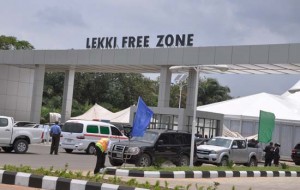 Ecotourism defined in general terms is travelling responsibly to places that promote conservation of the environment and protection of natural habitats. Ecotourism is a global fast growth area of tourism which is growing at a rate of more than 20% annually – more than twice the average growth of the entire global tourism industry.
Ecotourism defined in general terms is travelling responsibly to places that promote conservation of the environment and protection of natural habitats. Ecotourism is a global fast growth area of tourism which is growing at a rate of more than 20% annually – more than twice the average growth of the entire global tourism industry.
“Sustainable tourism has proven to be one of the most effective ways of providing economic and employment opportunities for local communities while protecting the world’s natural resources,” said Taleb Rifai, WTO’s Secretary-General.
“For many people, there is an attitude of “we had better see it while it is still there to see” when it comes to visiting threatened forests or endangered wildlife,” said Patrick Durst, a senior forestry official with the UN’s Food and Agriculture Organization (FAO), working in Asia.
It is not a new idea to use eco-tourism to help build capacity in poor communities in the developing world, it should be more about creating a new way to protect our natural environment, create source of livelihood for people and fight poverty in an effective but sustainable manner. This will create a chain of community infrastructures which tourists and visitors have access to and the money generated from these infrastructures stays in the community and help them grow.
Nigeria is blessed with diverse eco-systems, ranging from coastal mangrove swamps and tropical rainforest along the Atlantic coast in the south with rivers flowing into the Lagos lagoon and the Atlantic. Unknown too many, the corridor bordering the Atlantic Ocean in Lagos is richly endowed with resources and areas set aside for environmental conservation such as wildlife sanctuaries, forest reserves and protected wetland.
It is pathetic that numerous efforts to ensure that sustainable tourism practices are being implemented to bring benefits for wetlands, their wildlife, and people. We would emphasise that tourism business, if well informed and prepared to adapt their operations, can certainly promote and support wetland biodiversity and the natural beauty of wetlands.
The Rural Beach tourism industry in the Lekki and Badagry axis is an example of the success of eco-tourism in Lagos. Although the impact might be minimal for now, but participatory decision making in alleviating poverty through sustainable tourism will cause an Improvement on this developmental strategy and will certainly increase net economic gain to coastal people and the Lagos State Government. It will be worthy of note that when local inhabitants are made to understand the economic benefits of protecting nature and their environment as a way of bringing economic development to their community, it will be an easy task for the government to develop infrastructures that promotes eco-tourism.
The experience from this initiative will be useful in designing a standard community based tourism agenda for other coastal villages in the state and other states planning eco-tourism and bio-diversity conservation programmes.
Deliberate destruction of this unique expanse of pristine forest with natural habitat for the conservation of biodiversity, nature and diverse ecological landscapes in this region is at the trend which is alarming does not paint the country, especially Lagos, in good colours in the community of tourist destinations.
Blending environmental endowments such as beaches, pristine forest and lakes with its rich and diverse cultural heritage into development projects helps bring closer to the people an experience of modernism or civilisation as many analysts may describe it, but including petrochemical plants and related businesses in the designated tourism zone in the Lekki peninsula axis of Lagos State is like repeating the environmental disasters of the Niger Delta.
In as much as the development initiatives are evidence of progress in economic development, it is a pointer in the direction of environmental degradation and destruction of natural habitats which will be at the receiving end of toxic wastes from the petrochemical plants in the Lekki Free Trade Zone. Toxic waste management is an important area that should be carefully planned because the livelihood of the inhabitants of these areas are dependent on the environment whose major occupations include fishing, farming boat building and other crafts which major raw material source are products of the immediate natural ecosystem.
It is a good initiative that the beaches along the Lekki Peninsular axis are designated as tourism zone with a number of planned beach resorts, also promoted as eco-tourism. An unexplainable part of these development projects is the fact that this so-called “eco-tourism” is always grouped together with petrochemical industry in the different development plans of Lagos State.
The concept of eco-tourism is not yet understood or is it being redefined by the Lagos State Government and its consultants? Eco-tourism cannot develop as long as petrochemical industry is located by its side. This is found in the masterplan of the Lagos Free Trade Zone and also interestingly mentioned by Ibukun Akin Fakeye, the managing director of the Lakowe Luxury Golf resort in an interview with Caterina Bortolussi (Italian designer and media consultant). As an international attraction complementing his planned Lekki Golf Beach resort, he wants to build a Techno Park.
A Techno Park is a knowledge-based complex and home for IT companies, petrochemical research, medical research and service-based industry, and also provides eco-tourism opportunities where people study the environment and find means of protecting, preserving and maintaining it. We want to make sure that the community in which we are operating is not left damaged.
The Golf resort, also known as “Lakowe Lakes Golf Resort,” is located just off the Lekki-Epe Expressway, the only major highway that will service a future airport and seaport.
Volumes can be written about the Niger Delta environmental pollution due to petroleum exploration which has caused the damages and loss of diverse ecological and geographical landscapes of this region, in the form of rivers, creeks, pristine mangrove forests, wet lands, beaches and marine ecosystems. Had it been there have been a working framework for the preservation of the environment in those areas which nature have provided more than adequate bounties for tourism development.
It will be a slap on the face of our generation if we fail to protect and conserve nature at the expense of cheap economic gains in the light of the numerous global examples in the field of environmental protection and knowledge nature conservation.
By Ajibola Oseni

